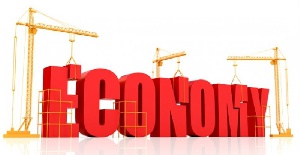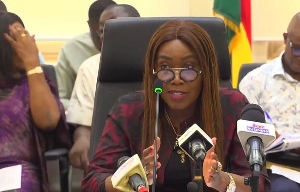- Home - News
- TWI News | TV
- Polls
- Year In Review
- News Archive
- Crime & Punishment
- Politics
- Regional
- Editorial
- Health
- Ghanaians Abroad
- Tabloid
- Africa
- Religion
- Election 2020
- Coronavirus
- News Videos | TV
- Photo Archives
- News Headlines
- Press Release
Business News of Thursday, 26 February 2015
Source: GNA
‘Ghana needs serious reforms to restore economic growth’
Dr. A.D.A. Laryea, Senior Lecturer at the Economics Department of the University of Ghana, on Tuesday said Ghana needs serious reforms to restore some growth back to the economy.
Presenting a paper on “Exchange Rate Misalignment and Economic Growth in Ghana since 1975” at a roundtable organized by the Institute of Economic Affairs (IEA) on “Factors affecting Economic Growth In Ghana-Policy Implications”, he noted that 25 years after independence, Ghana has become a basket case.
He said the period before the reforms generally saw some dismal growth, characterized by controls and restrictions, coupled with the heavy hand of government.
“The period after the reforms saw radically different policies that gave a freer hand to the price mechanism,” he added.
Dr Laryea further noted that one stark difference in policy in the two periods is exchange rate policy. The earlier period saw a more fixed regime that was not adjusted in the face of shocks, while the period after the reforms saw a more flexible approach to exchange rate policy.
The study uses data from the Ghanaian economy to investigate how exchange rate misalignment has affected growth over the years.
He said the results showed that indeed exchange rate misalignment, more specifically overvaluation, has affected growth negatively.
“In order to keep the exchange rate from being misaligned, government should make efforts to keep the economy competitive.
That, he said, required a number of actions, such as keeping interest rates low, containing inflation and dealing with the infrastructural constraints.
Professor John Asafu-Adjaye, Visiting Senior Fellow, IEA, presented a paper on “Will the Europeans Union’s Economic Partnership Agreement be Growth and Trade Enhancing? A Case Study of Ghana and ECOWAS,” and pointed out that a reciprocal trade agreement with EU is likely to have an overall adverse effect on ECOWAS countries, including Ghana.
He said although households experience welfare gains from the reduced import prices, most industries suffer severe contractions.
The EPA involves the European Union and its member-states, 16 West African countries (Benin, Burkina Faso, Cape Verde, Gambia, Ghana, Guinea, Guinea-Bissau, Ivory Coast, Liberia, Mali, Mauritania, Niger, Nigeria, Senegal, Sierra Leone and Togo), the Economic Community of West African States (ECOWAS), and the West African Economic and Monetary Union (WAEMU).
The agreement fully takes into account the differences in the level of development between the two regions.
The EU will provide West African firms with conditions that are more advantageous than those that apply to European exports to Africa.
In the negotiations, the EU committed itself to open its market to all West African products as soon as the agreement comes into force.
In exchange, the EU accepted a partial and gradual opening of the West African market. Only if and when West Africa will be ready to grant more far-reaching concessions to the Europe's main competitors, will the EU be able to claim those same improvements.
Under the terms of the agreement, West Africa will continue to be able to shield its sensitive agricultural products from European competition, either by keeping tariffs in place, or when necessary, by imposing safeguard measures.
To support local agricultural production, the EU has also agreed not to subsidize any of its agricultural exports to West Africa, among others.
West African companies will also have more flexibility to use foreign components, while still benefiting from free access to the EU market.
Ghana and Cote d’Ivoire have initialed EU to protect their exports to its market.











